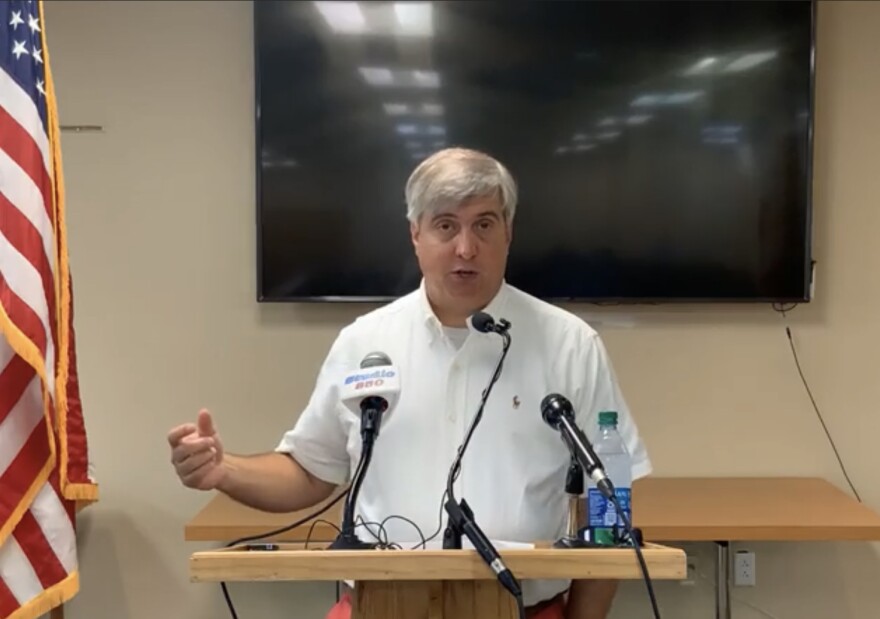More than a year into the coronavirus pandemic, Pensacola Mayor Grover Robinson is optimist that there’s some light at the end of the tunnel, given fewer local cases and ramped-up vaccinations.
First the numbers, during the mayor’s weekly news conference at City Hall. One area spent the past few days on something of a roller-coaster.
“We’re looking at our positivity rate; we have had an increase but we’re still under 10%,” the mayor said. “April 9 was 7.45; April 8 was 4.8, April 7 was 6.38, April 6 was 2.55.”
The latest case numbers are due out later this week from West Florida, Baptist, and Sacred Heart Hospitals. The biggest thing going now in relation to COVID-19, says Robinson, is what he calls “the push” – this week and the next two weeks – to get as many people vaccinated as possible.
“The Florida Department of Health began on April 5 vaccinating all Floridians that are 18 and older,” said Robinson. “Escambia County residents should use the statewide registration system to sign up. Residents can call (866) 201-1025, or pre-register online at www.myvaccine.fl.gov.”
Numerous locations, including local hospitals, have the doses of the vaccine ready to go – all they need are the arms.
“Last week, Baptist told me they were going to have 3,500 [doses]; Sacred Heart had 6,500, I think Community Health had nearly 2,500 – and that didn’t include 1,500 Johnson & Johnson that they did over the weekend.”
According to the state Department of Health, about 76,000 Escambia County residents had received at least one shot. Robinson says the goal is 176,000 countywide by the end of May.
“I’m not a science or biology person, but talking with them and listening to them very much tells me that COVID-19 is not going to go away totally,” said the mayor. “Our biggest hope is that it goes into something that’s more like the cold or something like that. It mutates in a way that the variants become much less acute; and they believe much of what doing the vaccine will also help push the acuity down.”
The mayor also addressed getting “back to normal” – at least what that normal will be post-pandemic. The pre-COVID “normal,” he contends, may not be coming back. Not reflecting that mood for now is the economy.
“Our numbers were close to where we were in 2019, which was faster than what I expected us to come back from the airline stuff; but it shows what is happening.
He adds that housing prices are also showing what’s happening with the economic recovery in what many are hoping are the waning stages of the pandemic. On one hand, Robinson likes seeing a rising in housing values as an indicator of people wanting to move to the Pensacola area.
“We’re getting to a point where rising home values right now are potentially going to become problematic for us,” the mayor said. “We’ve already been working on affordable housing, but I think we’re looking [at] even just how to deal with housing. We love affordable housing. We want to push affordable housing opportunities. But any housing opportunity at this point is going to be critical.”
Much of future home construction could very well be vertical, rather than covering additional turf. The mayor says that way, the only impact you make is on the first floor.
“Any residential unit you put above that first floor, is something that didn’t have to take up green space; these are why we talk about the things we’re doing,” said Robinson. “How do we grow in a way that is environmentally sustainable, is sustainable for the city creating density that makes it easier to deal with bikeable, walkable projects, mass transit – any of those things?”
And Mayor Grover Robinson wrapped up the newser by announcing that a report on homelessness in Pensacola is due out by the end of May more than two years after a summit on the issue was held.

